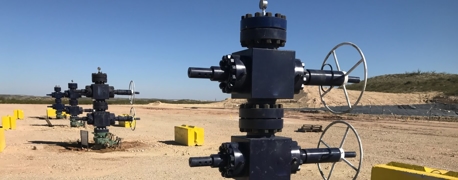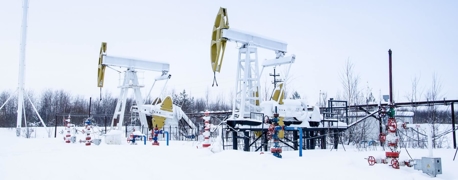The Most Dangerous Jobs on an Oil Rig

Historically, the oil and gas extraction industry has been one of the most dangerous industries for workers. From 2005 to 2009, the Bureau of Labor Statistics compared occupational fatalities in oil and gas extraction to other industries; it found that extraction fatalities happened 2.5x more often than in the construction industry and 7x more often than in the general workforce. It’s worth mentioning data experts consider these numbers lower than the true injury rate for oil and gas extraction due to underreporting.
The most likely injuries or accidents that occur on an oil derrick include:
- Contact injuries (including any impact or contact with equipment)
- Being struck by an object
- Getting caught in equipment
- Injury by material or parts
Of those fatalities, just over half occurred to workers employed by well-servicing companies.
The people who work on rigs in Texas, Louisiana, and across the U.S. are put at risk every day not only because of the nature of their work, but because the companies they work for choose to put safety on the back burner.
What Are the Most Dangerous Jobs on an Oil Rig?
Suffice it to say, working in the extraction industry comes with serious risk—but what jobs pose the most risk to workers’ long-term health?
There are two in particular worth mentioning: derrick operators and wellhead pumpers.
Is Being a Derrick Operator Dangerous?
In a word? Yes. The data shows that derrick operators have a lower fatality rate compared to other occupations, but experts believe that the true numbers are far higher; derrick operator injuries are suspected to be underreported. The median number of workdays missed due to derrick injuries is about 5x higher than the worker average; the typical injured derrick operator will miss 2 months of work.
These are the most common accidents and injuries derrick operators experience:
- Getting caught in equipment
- Hand or shoulder injuries
- Overexertion due to lifting or lowering
- Bone fractures
Is Being a Wellhead Pumper Dangerous?
Wellhead pumpers face an equally hazardous career, but unlike derrick operators, wellhead pumpers work alone. This, unfortunately, increases the risk of serious injury—especially when an employee or contractor is hours away from medical help. Wellhead pumpers also face a variety of serious potential risks that, while rare, still occur.
Recent news items document wellhead pumper accidents like:
- Fatal gas releases
- Catastrophic explosions
- Pressure releases due to corrosion
- Impalement or impact injuries
Over 90% of wellhead pumper injuries involved the shoulders, arms, or hands—in other words, the body parts that an oil rig worker needs to keep working.
Source: Bureau of Labor Statistics
The Injury Lawyers for Oil & Gas Workers
Our firm’s founders are rooted in Texas. Our families have lived here for the better part of a century, and we’ve spent our whole lives here. We have friends and family out in the oilfields or working offshore; many of those friends we made in the course of representing them. For us, fighting for oil-and-gas workers is one of the most important things any Texan can do.
Just as importantly, we’ve won over $20 billion for our clients—we know what it takes to win. Our team works around the clock to help our clients rebuild their lives. No matter what.
If you were injured in an accident in the oil and gas industry, speak with us in a free consultation: (888) 493-1629. Let’s discuss your options.


